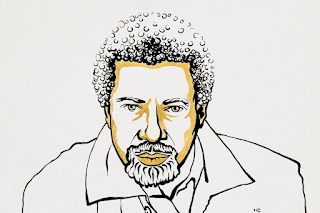Who is Abdulrazak Gurnah, 2021 Nobel Prize Laureate for Literature
The winner of the 2021 Nobel Prize in Literature was the British writer of Tanzanian origin Abdulrazak Gurnah. Let's talk about him — and cite a few quotes from his interviews from different years.
Abdulrazak Gurnah was born in 1948 in Zanzibar. Shortly after Zanzibar declared independence from British colonial rule in 1963, a revolution took place and the country was artificially merged with Tanganyika, forming Tanzania. Zanzibar Arabs began to be persecuted, and in 1968 Gurnah emigrated to the United Kingdom.
The key themes of the writer are colonialism, interethnic African conflicts, migration, both intra-African and African-European. In his novels, Gurnah shows how the colonial practices of Europeans have done more harm to East Africans than any local conflicts, disputes, or abuses.
Gurna, like many of his characters, is a scientist, a professor at the University of Kent. He has worked on postcolonial literature, published two books and a number of articles on it, and edited Salman Rushdie's Cambridge Companion.
The novel "Paradise" was included in the short list, and "Desertion" and "By the Sea" were included in the long list of the Booker Prize. In 2021, Gurnah was awarded the Nobel Prize with the wording "for his uncompromising and empathetic approach to the consequences of colonialism and the fate of refugees across cultures and continents."
On the Importance of Historical Literature
"Literary texts devoted to historical events that are familiar to us only in general terms sometimes help us understand them better than dry facts. I don't think it's important when the story takes place, in the past or in the present, it's the theme itself and its treatment that matters."
(Source)
On colonialism
"I'm not interested in writing about war or the ugliness of colonialism. Instead, I want to show the context in which war and colonialism existed. And to show that people in this context were living people."
(Source)
About Islamophobia
"Islamophobia has spread everywhere since the attack on America in 2001 and the start of the war on terrorism. Before the wars in Afghanistan and Iraq, Muslims were "intimidating" or "terrorists," but now they have become "enemies." Muslims are seen as dangerous and unstable. Increasingly, the media portrays Muslims — radical Muslims, of course, but not always them — as crazy fanatics."
(From the collection "British Muslim Fictions")
On working on novels
"Sometimes ideas take time to mature. I've been working on Paradise, my Booker shortlisted novel, for ten years. During this time, I managed to publish three more books. "Gravel Heart" was at first a short story about the death of my mother, and then I realized that [in this story] there is something more to explore, to spin in my head."
(Source)
On returning to the same questions
"Every writer cultivates one, and quite small, piece of land all his life, he just looks at it from a different angle every time. This doesn't happen on purpose, it's just that we worry about the same things all our lives. Even if you want to switch to other topics, important questions for the author pop up again. They reflect the writer's ways of thinking, and sometimes even shape it."
(From the collection "Writing Across Worlds")





.jpg)




.jpg)


0 Reviews:
Post Your Review